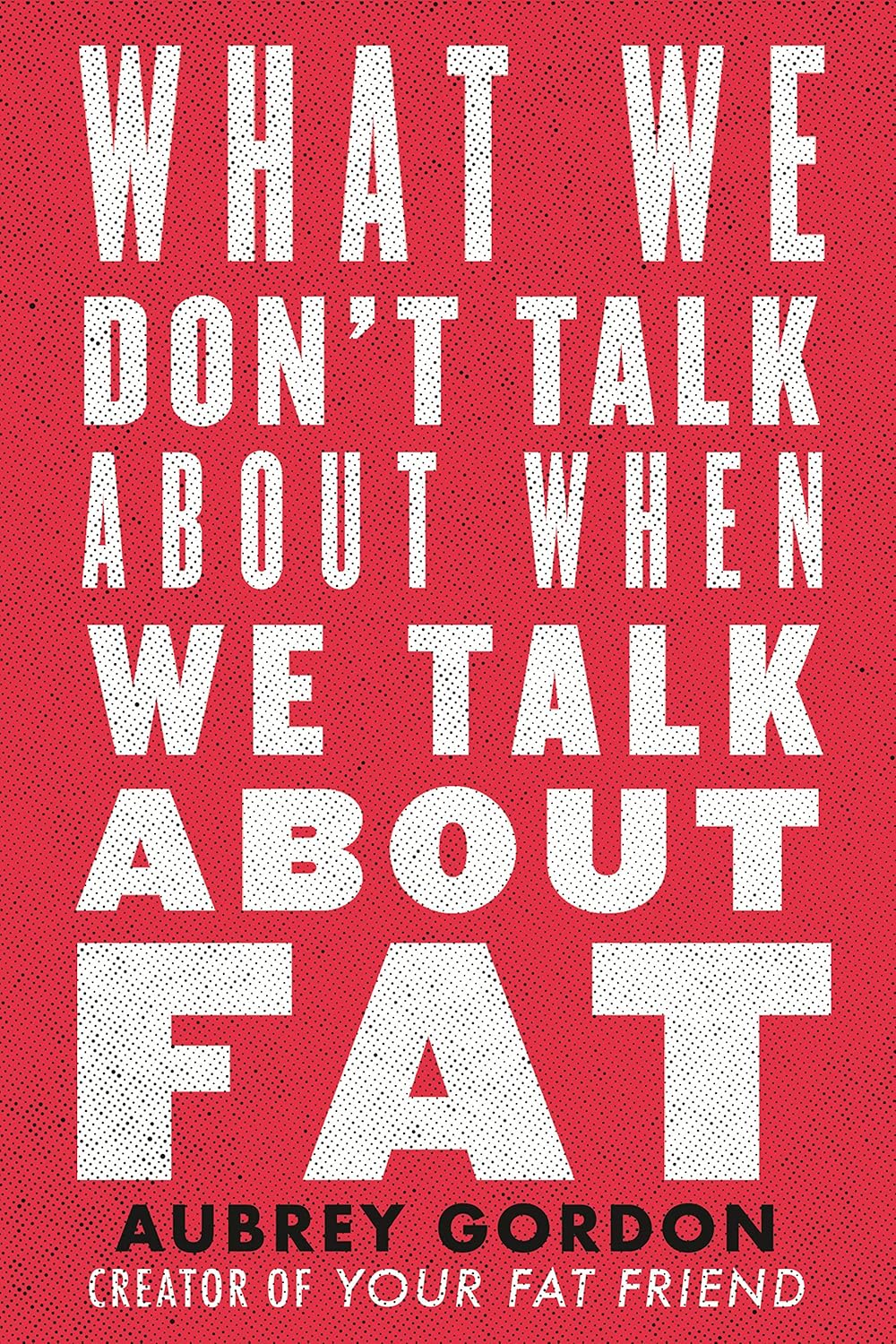About this deal
Everyone, but especially straight-sized individuals, and people who still hold onto ideas about weight as a proxy for health. Gordon shares many stories like the one about the airplane incident throughout her book, ranging from strangers in grocery stores telling her what food she should or should not buy, to being enrolled in fat camp at age 9. Reading about this, my heart broke for fat kids everywhere who bear the burden of our obsession with thinness. I had to know: How does one heal from this kind of trauma?
What we don’t talk about when we talk about fat: by Aubrey
Author Gordon explores all of this and much more in her book. She is what she describes as ‘very fat’, and she has experienced a life of doctors, friends, and strangers making all sorts of assumptions about her, and judgments about her life and frankly about her worth. In the book she shares her own experiences, but this isn’t a memoir. It’s a well-researched, evidence-based look at many of the different ways fat people experience discrimination at the hands of thin people, corporations, the diet industry, and society as a whole. I find an immense sense of freedom and power in learning the histories behind this stuff and doing deep dives into the research. Because the further you get into it, the more I found that this stuff is not based on science. The ways that we treat fat people are not based on science. They are not based on outcome-driven ideas. The ways that we treat fat people are kind of terrible, and they don’t actually make fat people thinner, or healthier, or happier. None of the above. There’s something about peeking behind the curtain of all of this that feels immensely empowering,” Gordon says. Anti-fatness is everywhere. In What We Don’t Talk About When We Talk About Fat, Aubrey Gordon unearths the cultural attitudes and social systems that have led to people being denied basic needs because they are fat and calls for social justice movements to be inclusive of plus-sized people’s experiences. Unlike the recent wave of memoirs and quasi self-help books that encourage readers to love and accept themselves, Gordon pushes the discussion further towards authentic fat activism, which includes ending legal weight discrimination, giving equal access to health care for large people, increased access to public spaces, and ending anti-fat violence. As she argues, “I did not come to body positivity for self-esteem. I came to it for social justice.”I am not fat. I mean, according to the BMI (which, as Gordon clearly lays out in her book, is utter bullshit) I am a bit ‘overweight,’ but even at my heaviest I have always been able to shop in pretty much any store and know that something will fit me (except trousers, but that’s about my height). But I’ve dieted, and still find my mood impacted by the number I see on the scale. She recommends some easy policy changes, like including body size as a protected class in schools where states have banned bullying. “The number one reason that kids are bullied in school is because of their weight. It’s above and beyond anything else. … We could make some serious strides to reduce the harm that is facing fat kids in schools.” All of the policy changes she proposes are pretty light lifts, but they would be strides toward dignity for fat people. A peek behind the curtain might just turn into a trip down the rabbit hole: Research indicates that weight stigma and fat bias are actually more damaging to one’s health than being overweight or “obese.” All the fuss and concern-trolling over fat people’s health? It’s actually incredibly harmful.
Fat Friend Wants You to Start Having Conversations With Your Fat Friend Wants You to Start Having Conversations With
Diet culture is insidious. You see it on TV, like when Miranda from Sex and the City joins Weight Watchers right after having a baby. You hear it from your co-worker who won’t stop talking about how they simply cannot eat another cookie at the holiday party. And I’d venture to guess you even hear it in your head, when your pants are suddenly fitting a little differently. Regardless of how normalized diet culture is, it’s harmful. Aside from structural changes, I wondered what thin people specifically could do to be better allies to fat people. “Talk to your doctor about how they treat fat patients. See if they have equipment that holds fat people. In your friendships with fat people, ask them about their experiences as fat people. Ask them what you can do to help them in the moment if you witness street harassment or someone treating them differently as a result of their size. There are all kinds of ways for folks to show up for this kind of work,” Gordon says. Photo by Luis Alvarez/Getty Images.
One area she focuses on, which I found enlightening, was the way the body positivity movement — along with other similar areas — treat the concerns fat people raise as ‘insecurities.’ ‘You just need to feel better in your skin!’ But that ignores the reality that fat people can feel as fine as they like in their skin, but that doesn’t mean a lot if they can’t buy clothes in person, or sit comfortably in a restaurant, or receive quality health care that doesn’t assumer every ailment from an ear infection to a broken bone is caused by weight.
Related:
 Great Deal
Great Deal 